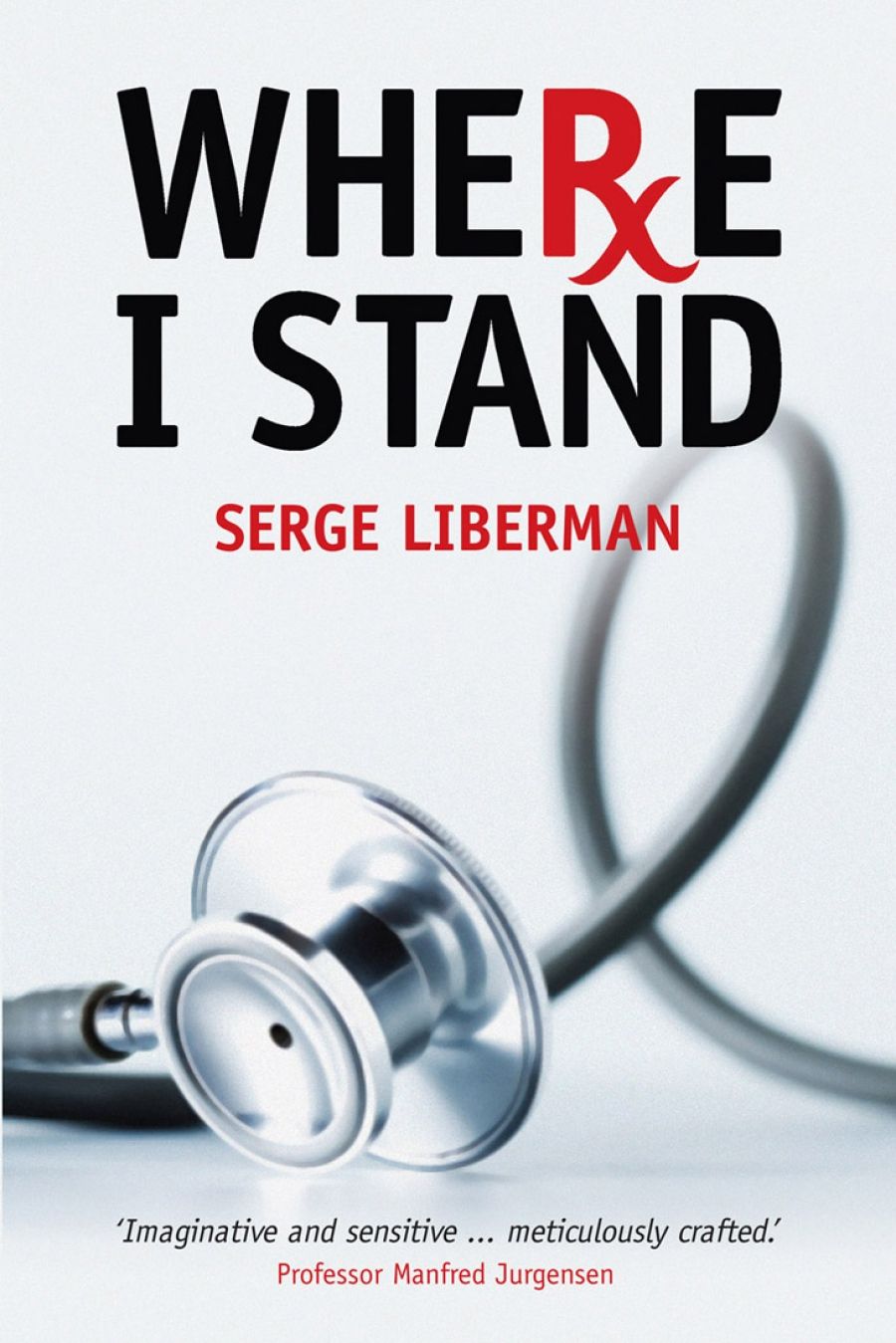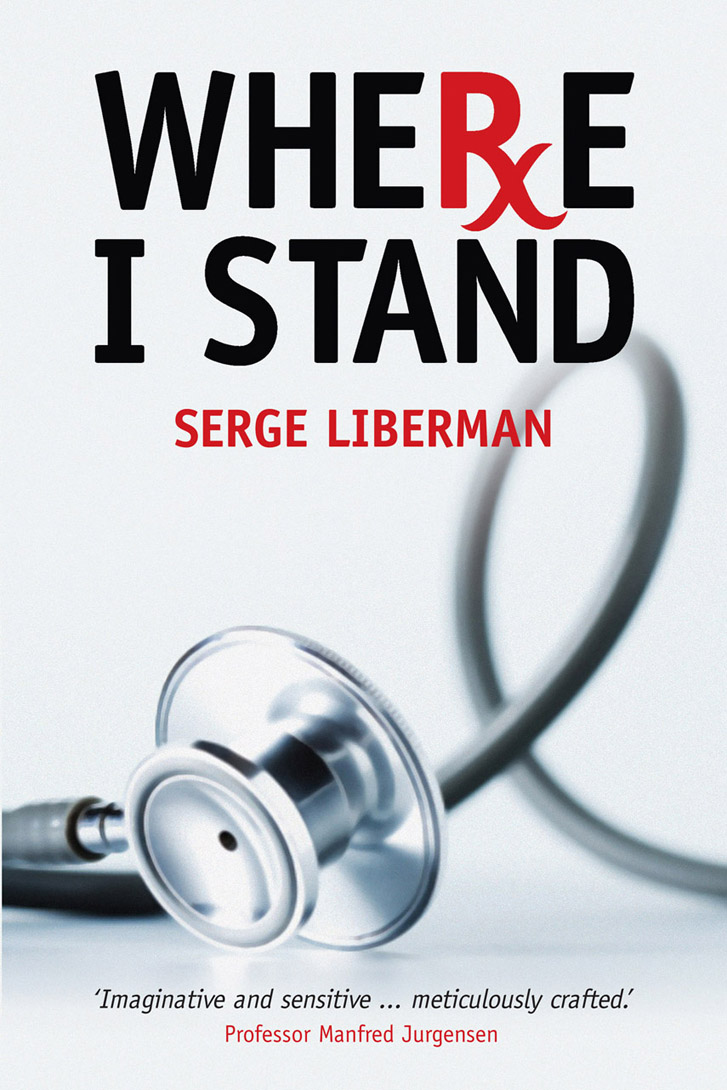
- Free Article: No
- Contents Category: Short Stories
- Review Article: Yes
- Online Only: No
- Custom Highlight Text:
Serge Liberman’s new book contains a series of short stories and one novella, all narrated by Dr Raphael Bloom, a Melbourne physician who variously plays the roles of healer, confidant, confessor and counsellor to patients and their families. In doing so he explores existential and theological problems which often revolve around the Jewish memory of the Holocaust and the post-memory of second-generation migrants. For members of this traumatised community, brushes with illness and mortality raise the spectre of that terrible event and show how the past is not easily laid to rest.
- Book 1 Title: Where I Stand
- Book 1 Biblio: Hybrid, $32.95 pb, 263 pp
- Book 1 Cover Small (400 x 600):

- Book 1 Cover (800 x 1200):

These narratives are not easy reading; they confront illness, mortality, pain, grief and trauma. They give voice to rock-bottom despair, loss of faith and, in the case of mixed marriages, fear of the gentile Other; but they also contain seeds of hope and redemption. Often Bloom is a conduit for the voices and experiences of his patients; his role as speaker is played down, and there is little action within the narratives. Many of the stories are more like dramatic monologues than narratives, which draw the reader into the physician’s role as listener. The speaker tends to use long and complex sentence structures, which can be difficult and alienating to read, but, after fifty pages or so, one becomes attuned to the sophisticated thought processes of the narrator.
Despite the minimisation of the narrator, the issue of where he stands is, as the title suggests, at the core of the stories. This is difficult to fathom until the final, biographical story, which uses a third-person narrator. Bloom is a man of the people, a compassionate doctor who ministers to his patients’ bodies, minds and spirits, but in his ethical and theological dilemmas, his position is largely unresolved. Ultimately, it is his role in the community and the lives of individuals that gives his own life meaning and purpose.


Comments powered by CComment